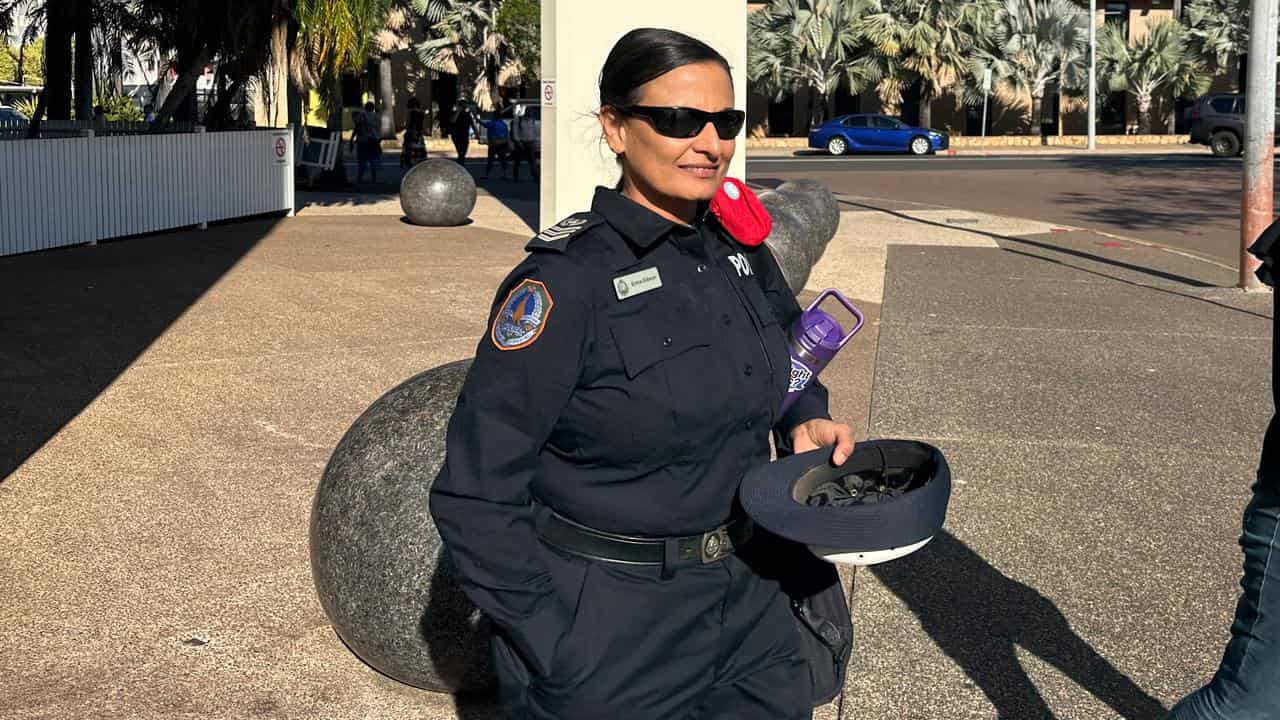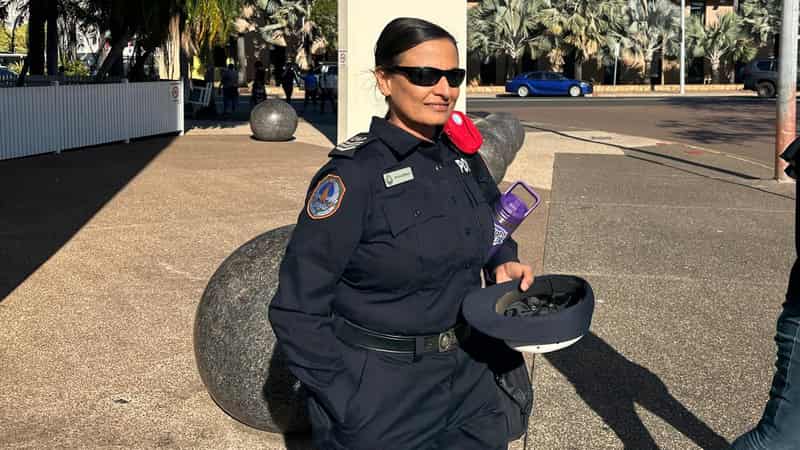
When Miss Yunupingu presented to a remote Northern Territory women’s shelter, pleading to be transferred to Darwin, alarm bells should have been ringing.
Instead, within days she was reunited with her violent husband, and within weeks he had fatally stabbed her in the heart.
A senior NT police officer has told the inquest into her death that if she hadn't been removed from a government-funded domestic violence support program in 2018, she may not have been killed by Neil Marika months later.
"I didn't have a reason why she should come off or why the risk had been reduced," Senior Sergeant Erica Gibson told the inquest in Darwin on Tuesday.
Sen Sgt Gibson placed Miss Yunupingu on the Family Safety Framework (FSF) in 2016 after her husband had been jailed multiple times over their 13-year relationship for assaulting her and breaching a number of domestic violence orders.
The FSF assessment tool found she was at high risk of serious harm or death due to domestic violence and was eligible for "holistic support" through the program.
In March 2018, she was inexplicably removed from the program, months before her husband was due to be released from a Darwin jail for assaulting her.
In September that year, Miss Yunupingu presented to a women's shelter in Gove, in remote northeastern Arnhem Land.
She said she was "feeling like self-harming", was under constant pressure from her mother-in-law, and wanted to be transferred to Darwin.
Miss Yunupingu and Marika had a long history of reuniting, despite domestic violence orders being in place.
Sen Sgt Gibson, who was no longer the officer in charge at the time, said if she had remained on the framework, someone could have intervened.
"If you had received information from staff at the shelter that there was a plan to transfer her to Darwin at that time, what would your attitude be?" counsel assisting the coroner Peggy Dwyer asked.
"It would almost be grounds for an emergency,'' Sen Sgt Gibson replied.
"In my position I would hold concerns as to why she would want to go elsewhere from where her strong family base was.''
Ms Dwyer said the family was very "sad and concerned" that Miss Yunupingu was flown to Darwin by the women's shelter.
"If she had been in the (FSF) at that time, would there have been a better opportunity for information sharing about the risk to her of transferring her to Darwin?" Ms Dwyer asked.
"Yes," Sen Sgt Gibson responded.
Despite the risk, Miss Yunupingu was flown to Darwin and returned to live with Marika and some family in Palmerston.
Family members told the inquest that over the next two weeks, they were afraid of Marika and the pair were often arguing and shouting.
"I was upset ... there was really bad language," Makuduma Yunupingu said.
Makuduma said he heard arguing in the kitchen on the evening of October 4, 2018.
"(Marika) was holding her with his left hand and I saw he had the orange knife in his right hand," he said.
"The knife was our kitchen knife for cooking and cutting meat and tomato."
Marika then stabbed Miss Yunupingu three times, leaving her dead in a pool of blood on the kitchen floor.
Makaduma and his partner ran out of the house and called the police, but Marika came outside and told them: "She's all right, she's still alive, don’t call the police."
Marika was arrested and convicted of reckless manslaughter. He will be eligible for parole at the end of 2024.
It is one of four deaths of Aboriginal women being looked into by NT Coroner Elisabeth Armitage in one of Australia's biggest inquests into domestic violence.
"Sometimes it seems like because there's a lot of shame about this kind of trouble, everyone looks away and they do not want to get involved," Ms Armitage said.
"And the women have no one they can go to for help."
The inquest resumes on Wednesday.
13YARN 13 92 76
Aboriginal Counselling Services 0410 539 905
1800 RESPECT (1800 737 732)
Lifeline 13 11 14
1800 RESPECT (1800 737 732)
National Sexual Abuse and Redress Support Service 1800 211 028









